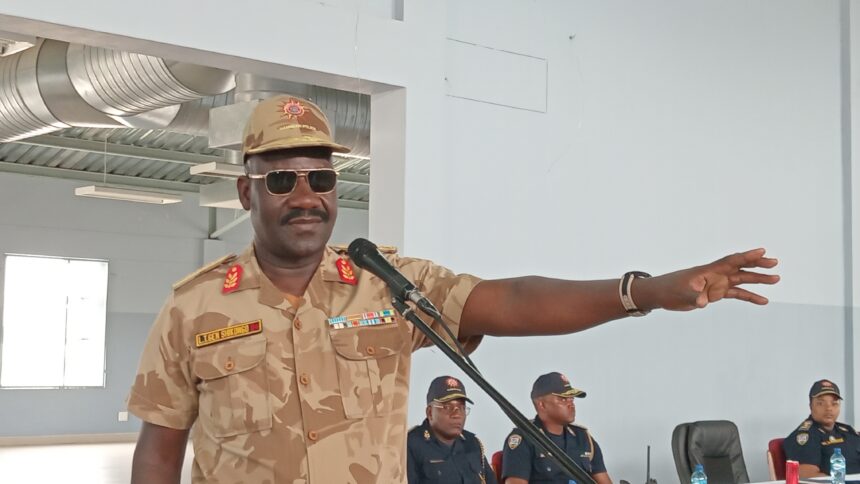Isabel Bento
SWAKOPMUND – Namibia recorded 4 405 cases of gender-based violence (GBV) between April 2024 and February 2025, with 1 345 of those being rape cases, Inspector General of the Namibian Police Force Joseph Shikongo has said.
The rising number of child sexual abuse cases, in particular, has sparked concern among authorities and civil society.
“These statistics are shocking, and there is an urgent need for community engagement to assist victims and encourage them to report abuse. Community members must advise victims to report such acts to GBV Protection Units for assistance,” he said.
He emphasised the critical role of the GBV Protection Units, which are now decentralised across all 14 regions of the country and offer a comprehensive range of services, including psychosocial support, legal services, investigation, and medical care. Victims can also reach out for help via the national GBV toll-free numbers 10111 and 106.
Shikongo was speaking at Swakopmund on Tuesday at the opening of the high-level stakeholders’ meeting on enhancing the Gender-Based Violence Information Management System (GBVIMS), coordinated by the Namibia Statistics Agency (NSA).
The GBVIMS is one of the main tools for monitoring and addressing GBV cases. It serves as a national repository for GBV data, but currently lacks real-time capabilities and full integration with other sectoral systems.
“The system’s dependence on manual processes hampers timely interventions, and undermines a coordinated national response,” said Shikongo.
He urged the government and stakeholders to strengthen coordination mechanisms, enhance national and regional GBV clusters, intensify the media campaign,
and scale up male engagement initiatives.
Meanwhile, the executive director in the Office of the Prime Minister (OPM) Gladys Pickering in a speech delivered on her behalf, reiterated government’s commitment to tackling GBV through policy leadership and coordination.
The OPM plays a central role in aligning GBV responses with the National Gender Policy, National Development Plans (NDPs), and Vision 2030.
Pickering added that from a policy implementation perspective, the OPM ensures GBV concerns are mainstreamed across all sectors. They are also working to strengthen the capacity of all stakeholders to effectively use and contribute to the national GBVIMS.
“However, if we do not dig deep into the root causes and are brutally honest with ourselves and each other, we are not going to win this fight against gender-based violence, domestic violence and rape. We have some of the best laws in the world, but we are not addressing the root causes,” she said.



